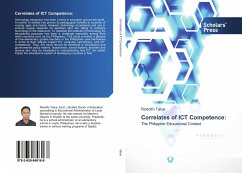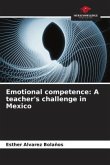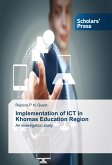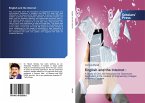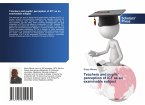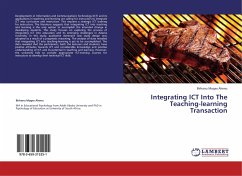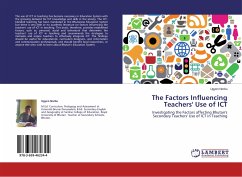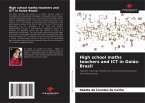Technology integration has been a trend in education around the world. A number of studies has proven its pedagogical benefits to students of varying ages and needs. However, technology acceptance and use in schools largely depends on teachers who are willing to embrace technology in the classroom. To maximize the potential of technology for educational purposes has been a challenge especially among third world countries such as the Philippines. This study provides a glimpse of how elementary grades teachers in the Philippines view themselves in terms of their attitude toward ICT, computer self-efficacy, and ICT competence. Thus, this study should be beneficial to educational and governmental policy makers, researchers, school leaders, teachers and anyone who may be interested in understanding how ICT can better impact the educational system of developing countries in Asia
Bitte wählen Sie Ihr Anliegen aus.
Rechnungen
Retourenschein anfordern
Bestellstatus
Storno

